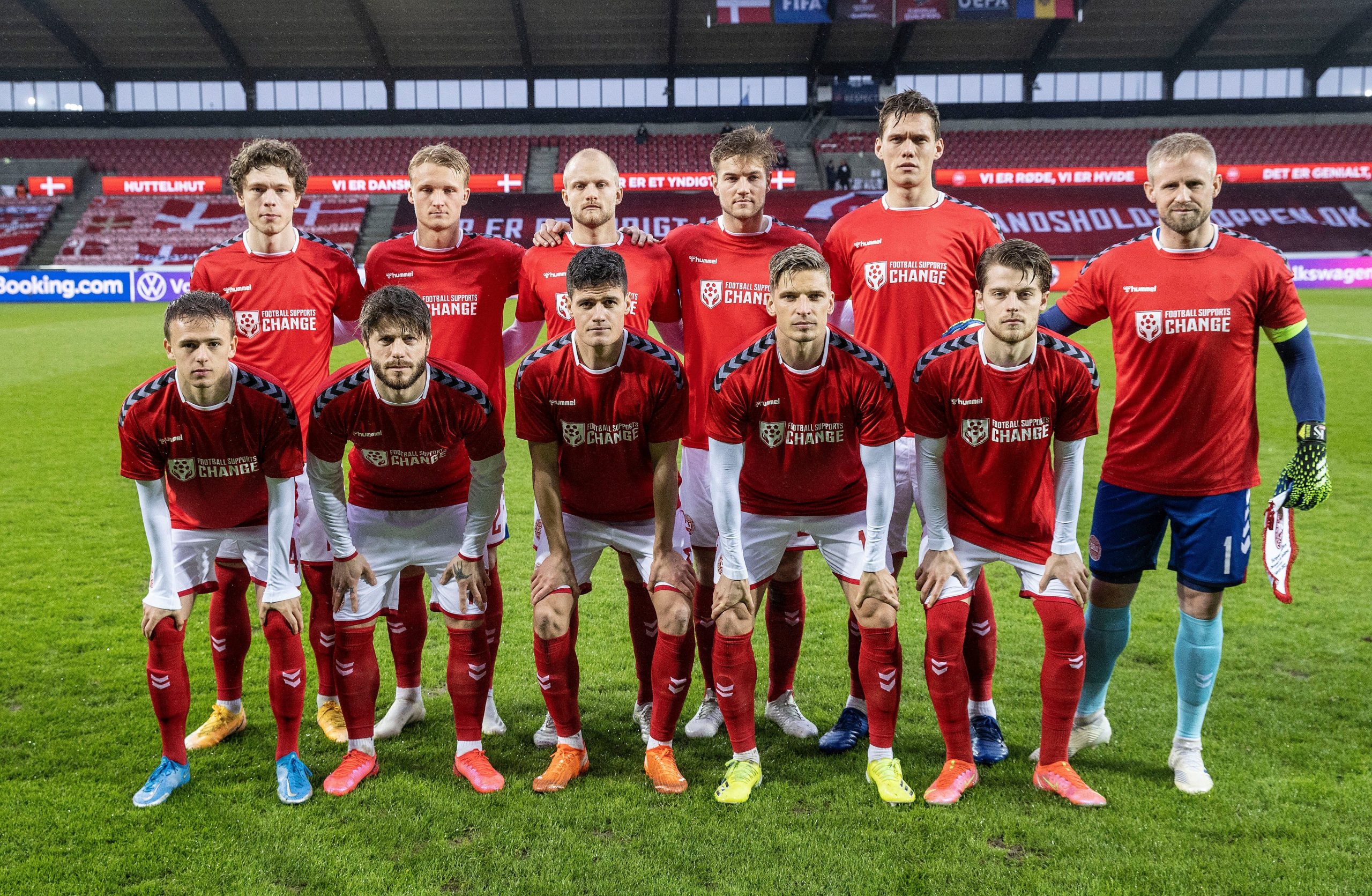Four countries have taken to the football pitch to protest the 2022 World Cup
Denmark’s national football team became the latest to take a stand allegedly against human rights abuses in Qatar, during a match at the European qualifiers for the 2022 World Cup.
The Danish team wore t-shirts that said “Football supports change” before their game against Moldova, imitating the Dutch team who did the same a day earlier.
The Danish soccer federation said the shirts will be signed and auctioned to raise money for projects with Amnesty International that help migrant workers in Qatar.
Read also: Politicising the pitch: Whose politics are acceptable?
Over the weekend, the German football team also wore t-shirts spelling ‘HUMAN RIGHTS,’ though the country’s footballing body announced it would not boycott the World Cup in Qatar.
Last week, Norway also allegedly protested against human rights abuses in the Gulf state by donning t-shirts that said “Human rights – on or off the pitch”.
Meanwhile, Clubs like Tromso have been attempting to apply pressure on the Norwegian FA to avoid the global sporting event in Qatar – the first of its kind in the Middle East.
Motives questioned
Experts have questioned the reasons behind the protests as well as the double standards being employed by some of the teams in Europe.
While rights groups did shed light on the issues, no eyebrows were raised by official football bodies or nations over rampant human rights abuses in Brazil or Russia ahead of the 2014 or 2018 world cup tournaments. However, this has not been the case for Qatar 2022.
Speaking to Doha News after a Dutch trade mission was postponed to protest the 2022 world cup earlier this month, Omar Salha, London-based Academic and Lecturer in International Diplomacy and Soft Power’, said that the move “raises an interesting question on the timing of the announcement”.
“Is this purely a humanitarian position that drives the motivation behind the decision made by the Dutch government? Or is this an act of political canvassing in light of the upcoming Dutch General Election scheduled to be held on the 17th March?,” he questioned at the time.
In comments to Doha News last week, the Dutch football federation admitted it was never in favour of the Qatari bid for the 2022 edition of the World Cup due to its “lack of football history and harsh temperatures”.
‘Historic Reforms’
The recent protests emerged just days after Qatar’s historic labour reforms came into effect last week, introducing the region’s first ever non-discriminatory minimum wage.
In addition to the minimum monthly basic wage of 1,000 Qatari riyals QR (275 USD), the new legislation stipulates that employers must pay allowances of at least QR 300 for food and QR 500 for housing, should employers not provide workers with these directly.
As part of the major labour reform agenda, Qatar has drastically enhanced monitoring across the board to detect violations, enacting swifter penalties and further strengthening the capacity of labour inspectors, according to an announcement made by the Government Communications Office (GCO).
Employers who pay their staff less than the minimum wage will face one-year in jail and a QR 10,000 fine.
Read also: Qatar says labour reforms ‘far from complete’ following Amnesty ‘Reality Check’ migrant report
The GCO also said that since the reforms and new minimum wage were announced in September 2020, some 5,252 companies with a total of 222,042 workers have already updated their payroll systems.
These labour reforms also include the dismantling of the controversial “kafala” or sponsorship system, becoming the first country in the region to do so.
Workers are no longer required to obtain an exit permit to leave the country, or a No Objection Certificate (NOC) to request permission from former employers to change jobs.
In an exclusive interview with Doha News, senior International Labour Organisation (ILO) official, Houtan Homayounpour said more work needs to be done to ensure the protection of workers in Qatar, though authorities should be recognised for the work that has gone into making these changes.
Meanwhile, FIFA President Gianni Infantino weighed into the global topic and assured protecting human rights is a top priority for FIFA.
“We need to be fair there (in Qatar) and admit a lot of progress has happened… in the conditions of the workers. Of course more can be done everywhere, always – even in Switzerland,” said the FIFA president.
Follow Doha News on Twitter, Instagram, Facebook and Youtube







